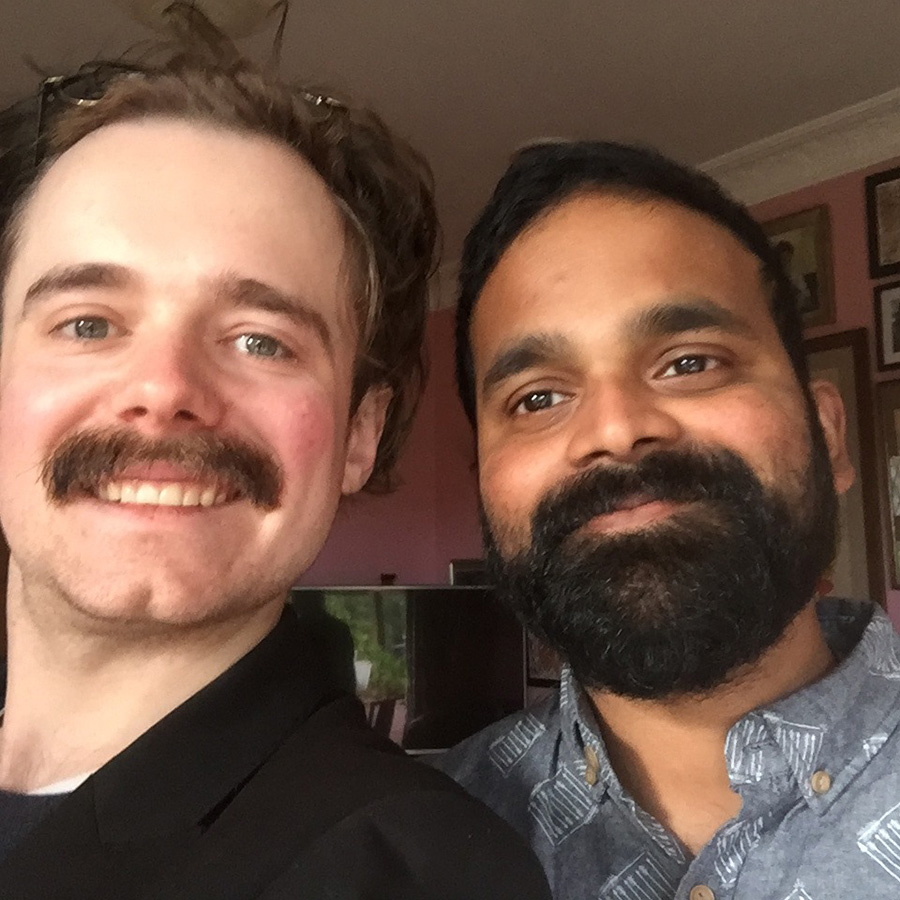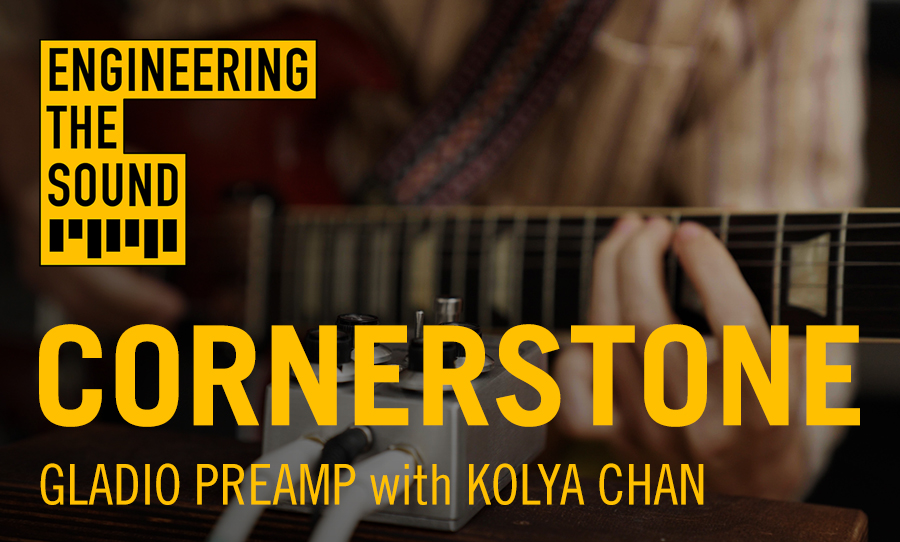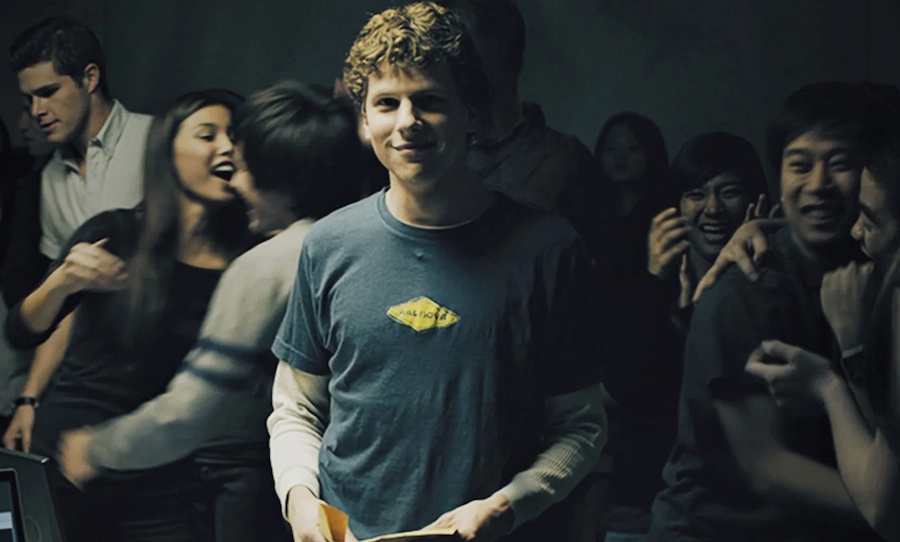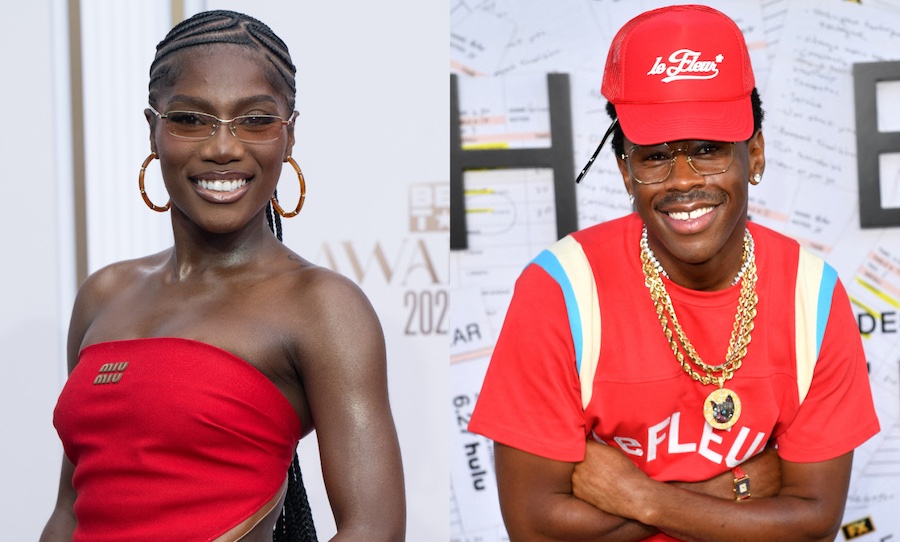I’m Finn Johansson, a songwriter from Wellington, New Zealand. Last week I released a song called All Of The Time/Not At All, on the six-month anniversary of the Christchurch mosque shootings.
It’s a song about me trying to find a way to sit with my difficult feelings about the attacks, and to learn how to fight racism and white supremacy – when I’m in the position where my personal safety isn’t threatened by them.
This interview represents my first foray into that education and I want to stress how fortunate I am to have a friend in my life that has the knowledge, time, patience and love to talk with me about it.
That friend is Gayaal Iddamalgoda. He’s a legal organiser for First Union, he was the candidate for the Migrant and Refugee Rights Campaign in Wellington Central in 2017, and he spoke on behalf of that organisation at the Wellington vigil for the victims of the attacks.
One of Gayaal’s current focusses is bringing the public’s attention to the NZ government’s ‘Family Link’ policy. Introduced in 2009, it prevents refugees from Africa and the Middle East from resettling in New Zealand unless they have family already living here.
In this conversation, Gayaal isn’t speaking for the New Zealand Muslim community. Rather he’s speaking as an expert on migrant and refugee rights and labour law in New Zealand, which are closely tied to the experiences of many of the people affected most deeply by the attacks.
Anyway, here we go! My conversation with Gayaal Iddamalgoda regarding All Of The Time/Not At All and the wider themes surrounding it…
Wellington-based singer-songwriter Finn Johansson chats to his friend Gayaal Iddamalgoda about the themes surrounding his latest single.
Finn: I just feel like it’s very specifically from my point of view, the song.
Gayaal: Mmhmm.
Finn: That I probably couldn’t have written about anything else than what I was feeling.
Gayaal: Yeah, I think it’s important to remember that we do all have some responsibility to deal with the problems that led to what happened in Christchurch. ‘Cause you know, the thing with fascism, particularly in New Zealand is that it teaches people who are vulnerable sections of the working class – like white, working class people – that the cause of their problems are people who are more vulnerable than themselves. And that’s a lie. It protects the rich.
Finn: I reckon there’s probably a lot of Pākehā New Zealanders who understand that what you just said is true –
Gayaal: uh huh.
Finn: – but then are looking for ways to act, like actionable things they can do to fight that, because there is a lot of discourse around it being completely separate from, y’know, capitalism, and colonialism as well.
Gayaal: Finding spaces to act in solidarity and in support of the people who are victimised by this kind of violence is really important. If you’re a working class New Zealander, and you happen to be Pākehā, you actually have more material culture in common with migrant working class people than you do with the Pākehā who run the country.
Finn: That’s so anti to all the propaganda that you hear about it.
Gayaal: It’s oftentimes more offensive for people to hear an accusation of racism than for actual racist behaviour and discourse to be had in public. Particularly around the Family Link restriction, the reason that’s been given by the government is that these people are a security concern. I think that it speaks to a subtle xenophobic racism that’s been brewing in mainstream New Zealand politics.
Finn: That’s insidious.
Gayaal: I think that’s an important way to look at it. Racism doesn’t come from out of the blue. It comes from an ideology that serves certain interests.
Finn: Yeah. It can be even more paralysing when you start to realise that. My everyday actions aren’t attacking the root cause. I find it difficult to know what to do, in that respect.
Gayaal: Mm.
Finn: But I guess it’s like, political activism.
Gayaal: Political activism, I mean, for me, unionism, is a place where workers of all backgrounds come together and try to assert their democratic rights – in the most capitalist sphere of our lives, our employment. And I think if you look at the fullness of human history – I know it’s a bit of a wanky thing to say – but human history goes in all sorts of directions, and it can surprise you. Just because power structures seem really overwhelming, they can be changed. They have been changed in the past. And we have to change them. Being sad about it is good.
Finn: But it’s the first step, right? Of many steps.
Gayaal: Absolutely. This person who committed this atrocity reflects a worldview that we need to confront.
Finn: That worldview is shared by a lot of people.
Gayaal: We have to say, you know, that’s your world. But we want a different world. We want a world where people can seek asylum wherever they need to; where people will be safe. That’s a different worldview that we have to actually put forward and we can’t be apathetic about that.
Finn: What do you think of the last 6 months?
Gayaal: A lot of things have been churned up. There’s been some good things. For example, people are talking about the Family Link for the first time. There have been some bad things as well. In some ways, the racist narrative is becoming stronger. Some people are able to say: ‘I’m not the one who did this’. And that’s not the point. You can’t use that as an excuse to avoid dealing with racism and inequality. These people say, ‘I feel bad about it, but it wasn’t my fault, and I don’t think we should take any more refugees’. You can see this all over social media. It’s really frustrating.

Finn: That’s fucked up, when people are like ‘I’m ostensibly anti-the attack, but I don’t think anything else should change’.
Gayaal: Yeah.
Finn: I think an important thing that you touched upon is stamping out the language of dangerousness about refugees from certain areas of the world, like Middle Eastern and African refugees. It’s like when you think about how the mosque was being monitored,
Gayaal: Yeah…
Finn: Because of this alleged safety concern.
Gayaal: Mm.
Finn: It’s starting from the top down.
Gayaal: Absolutely. That’s one of the most heartbreaking things about this. The people attending the mosque were monitored –
Finn: They were aware of it.
Gayaal: Yeah. It’s been going on for years. I know people who’ve been questioned by sort of detectives turning up to their house without any basis, while white supremacists have been organising publicly, and publicly threatening people –
Finn: To the point that the Muslim community was raising it as a concern with the government –
Gayaal: Absolutely. What astonished me in Christchurch was that some of these politicians came out and said ‘We had no idea that Christchurch had a problem with white supremacy’. I can remember when I was a student in Dunedin growing up, pretty much every year in Christchurch there would be a White Pride rally on their ‘flag day’.
Finn: Is that real?
Gayaal: Yeah. We’d go up in busses to counter protest them. This happened in public. And that’s the really hurtful, awful thing about it – this was completely ignored.
Finn: The denial.
Gayaal: Now it is being denied. Yeah. One of the people who spoke at the vigil, Nadia Abu-Shanab said it’s not so much ‘this is not us’, but rather ‘this is not who we want to be’. That should be the challenge.
Finn: I think you can link that back to the idea that conversations about racism are really touchy.
Gayaal: That’s right.
Finn: I want it to be something that I can acknowledge in myself and others freely.
Gayaal: I think the thing about fascism is that it serves the interests of the rich. Their greatest fear is that people will begin to reconceptualise their identity and be like ‘I am a working class person. These are working class people…
Finn: …’And if the problem doesn’t lie with brown people, then where does it lie?’
Gayaal: Well that is the danger for the rich isn’t it? We should always think ‘what do the fascists not want us to do?’ and then do that.
Finn: Unionise.
Gayaal: Unionise, yeah.
Finn: Thank you Gayaal for your time and expertise.
Finn Johansson’s All Of The Time Not At All is available now. Watch the new video above.



